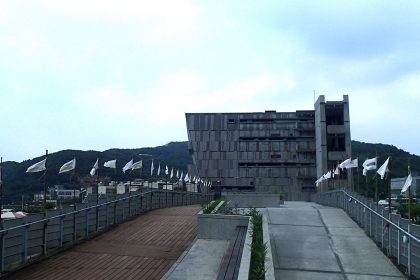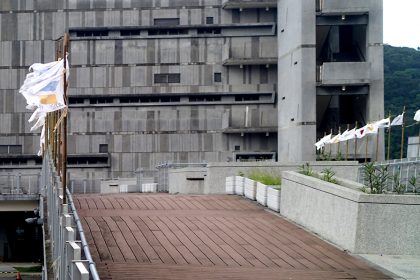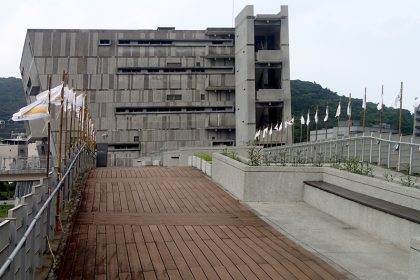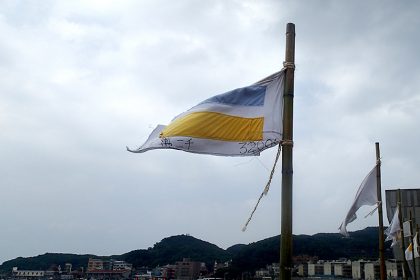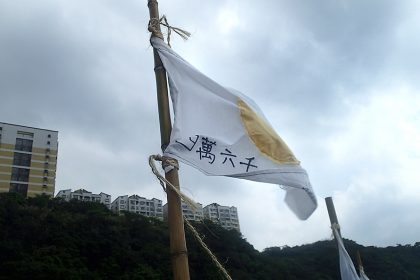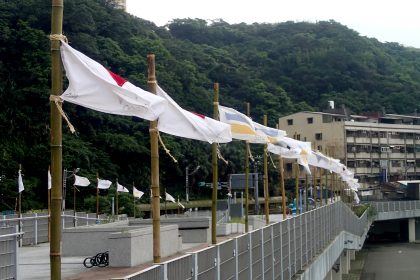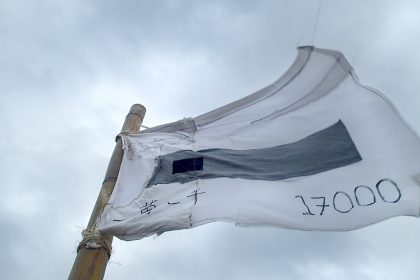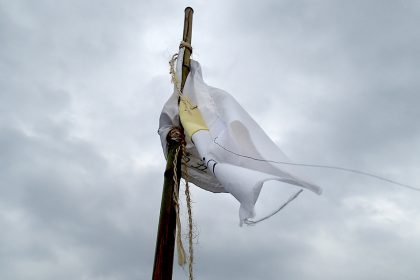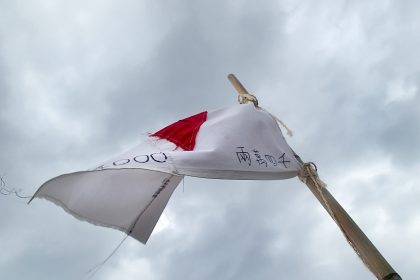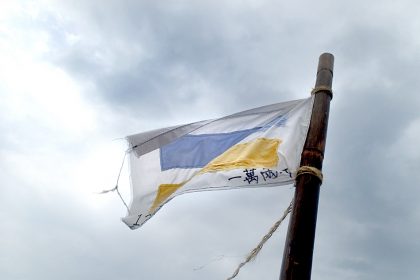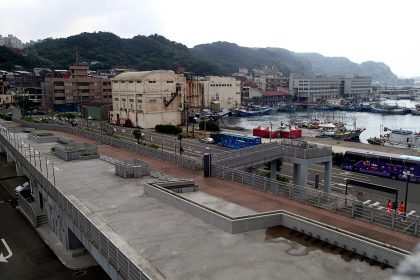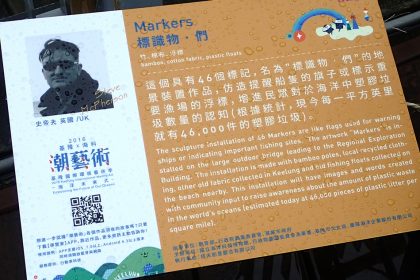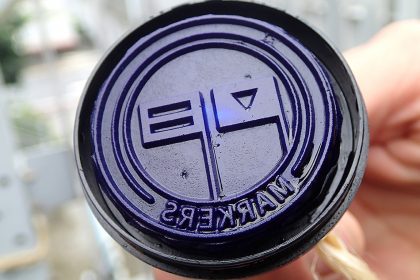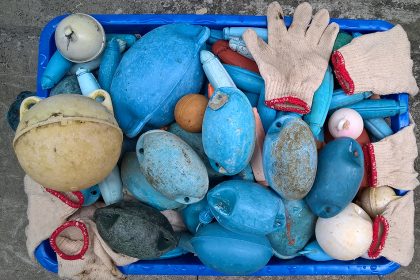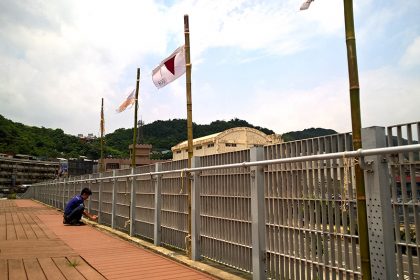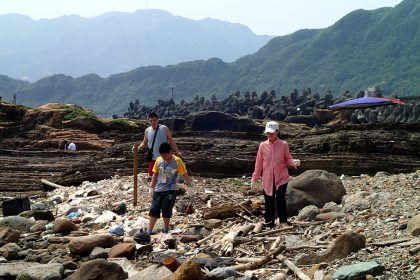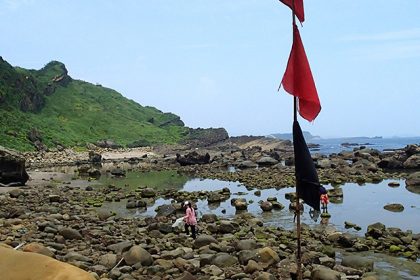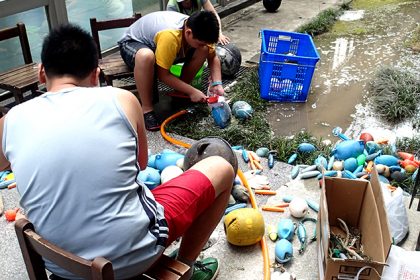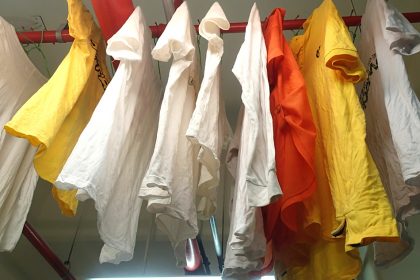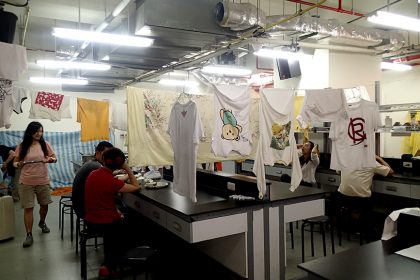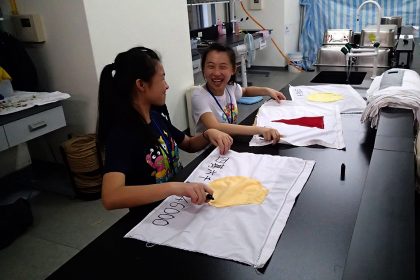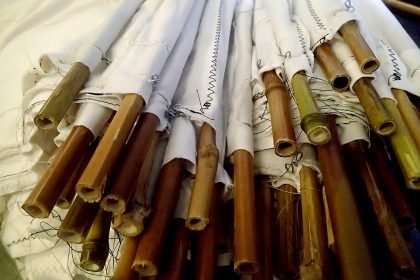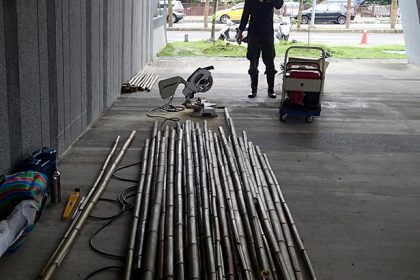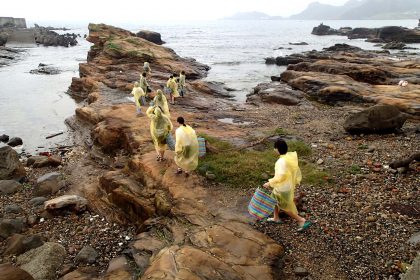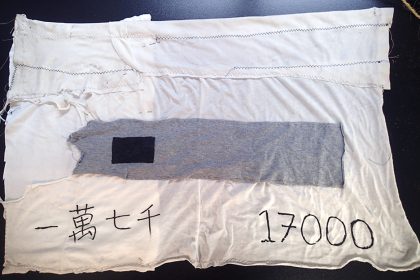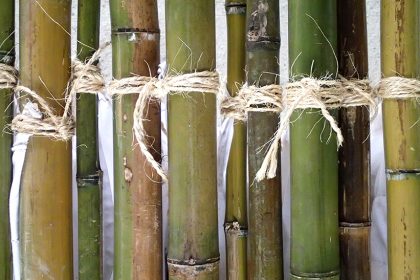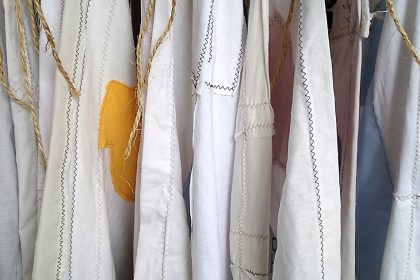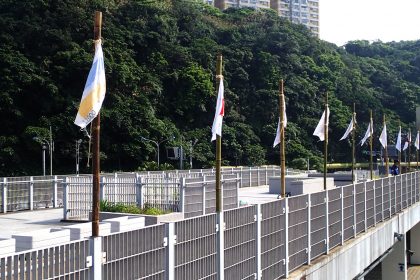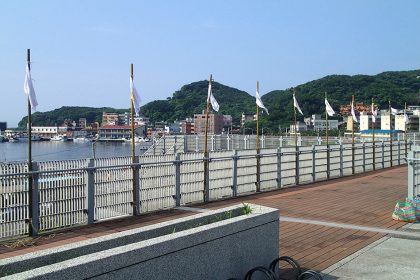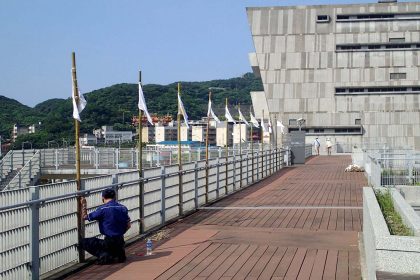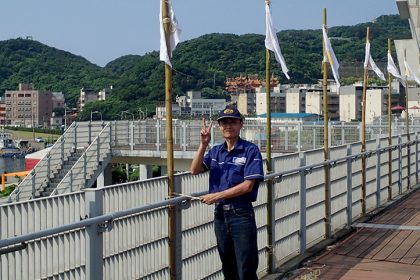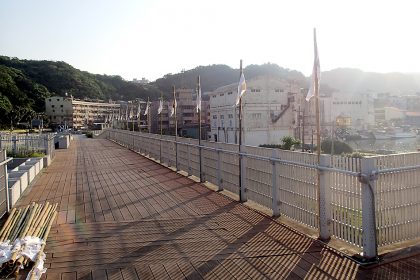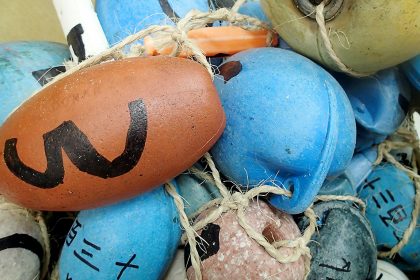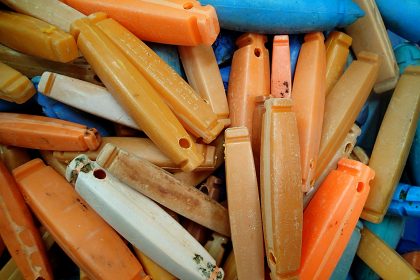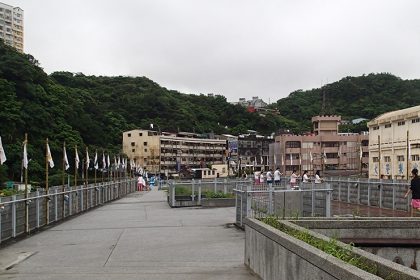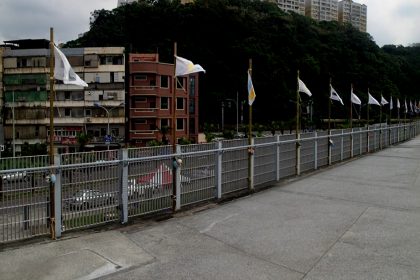Markers
Markers. 2016. A Project for the Keelung International Marine Art Project, at the National Museum of Marine Science and Technology, Taiwan. May 2016.
Presented are images from the whole process of creating the ‘Markers’ Installation. Along the way many changes occurred, including design and location, this was due to curatorial and logistical decisions. Many people were involved with its creation. Through record high temperatures for Taiwan, torrential rain and blistering sun, they endeavoured to help source materials, make and install the work.
The work itself is comprised of 46 flag markers based on fisherman’s Marker buoys. Here below is a shortened version of my proposal –
Flagged marker buoys are used in the marine environment to indicate a site of importance, an underwater activity and for fishing purposes. I propose to utilise this traditional and recognisable marine object to mark the importance of Keelung Port and our current and future marine environment. Whilst also referencing marine litter statistics and signalling the importance of both commercial and recreational human behaviour and its continual and future impact on our fragile marine ecosystem.
Through workshops with participants from local communities, I propose to create 46 numbered flag flying marker buoys. Each Buoy will carry a number from 1000 to 46,000 referencing the United Nations Environment Programme (UNEP) recently estimated 46,000 pieces of plastic litter per square mile of the world’s oceans.
The structures of the marker buoys should be mainly made of bamboo and/or other local sourced materials. The flags themselves should be made from recycled cotton fabrics/clothes, which would be collected by participatory schools and groups prior to construction of the buoys. Each flag will be created in participation with collaborative groups; where they will be numbered in mandarin, and English, and adorned with a symbol that denotes the most common object types found on the world’s shores, (see proposal image).
The ‘Marker’ project stands to bring a greater understanding and awareness of environmental issues, and of our own personal impact. Whilst highlighting the potential causes of a future worldwide marine environmental emergency.
